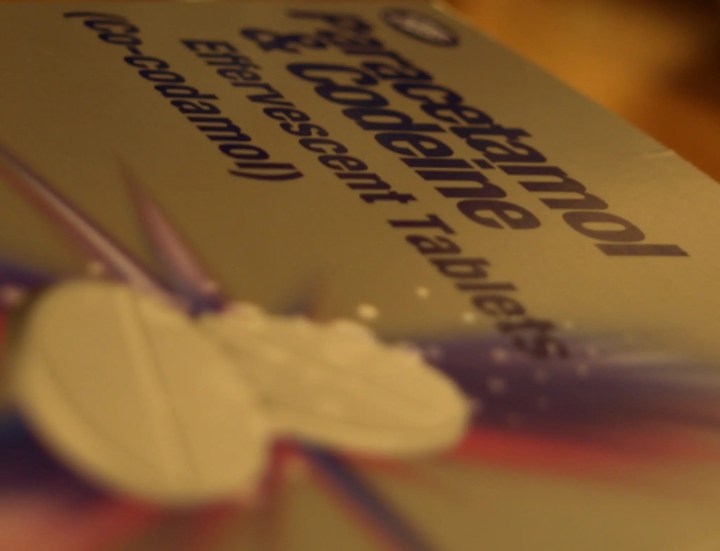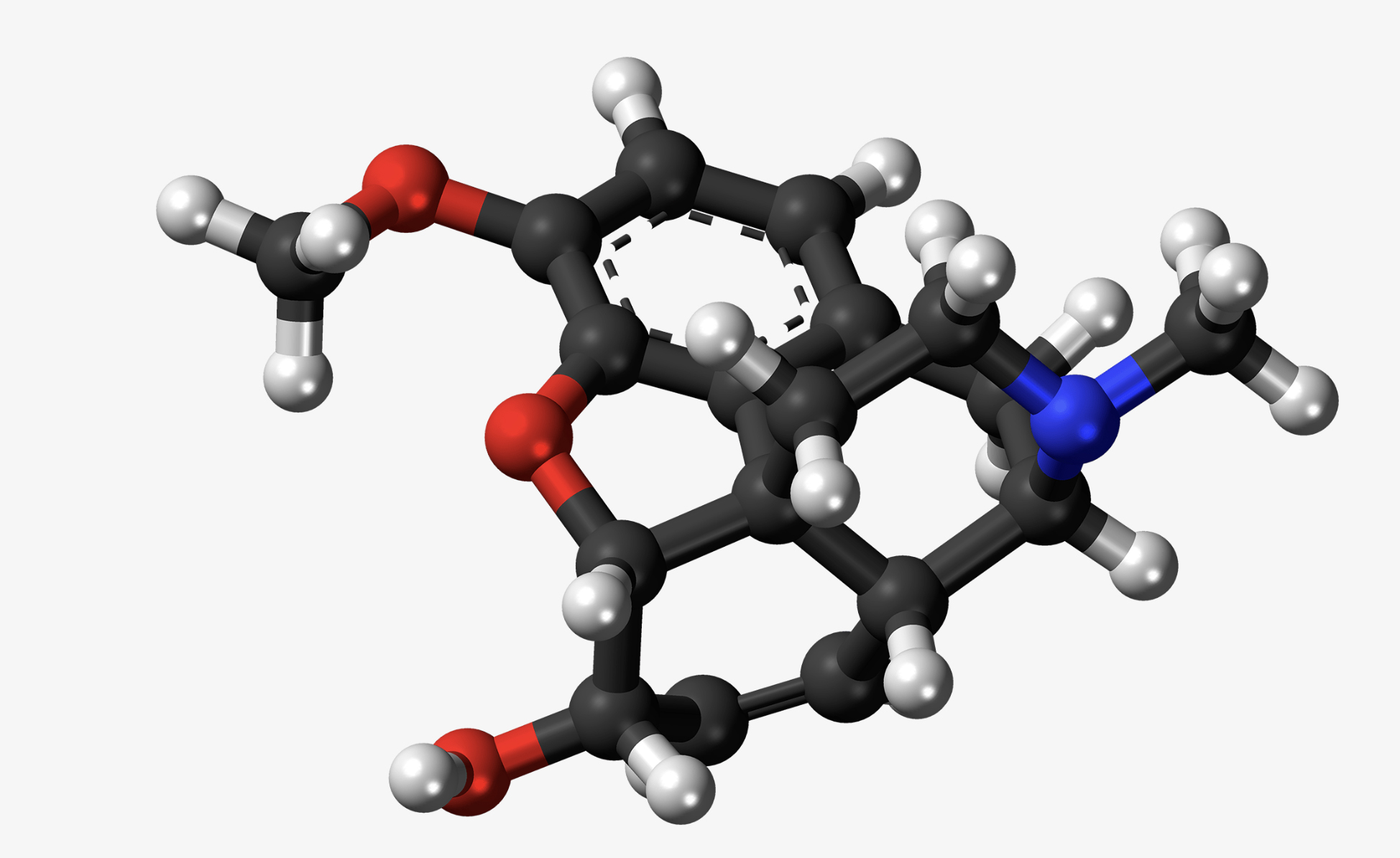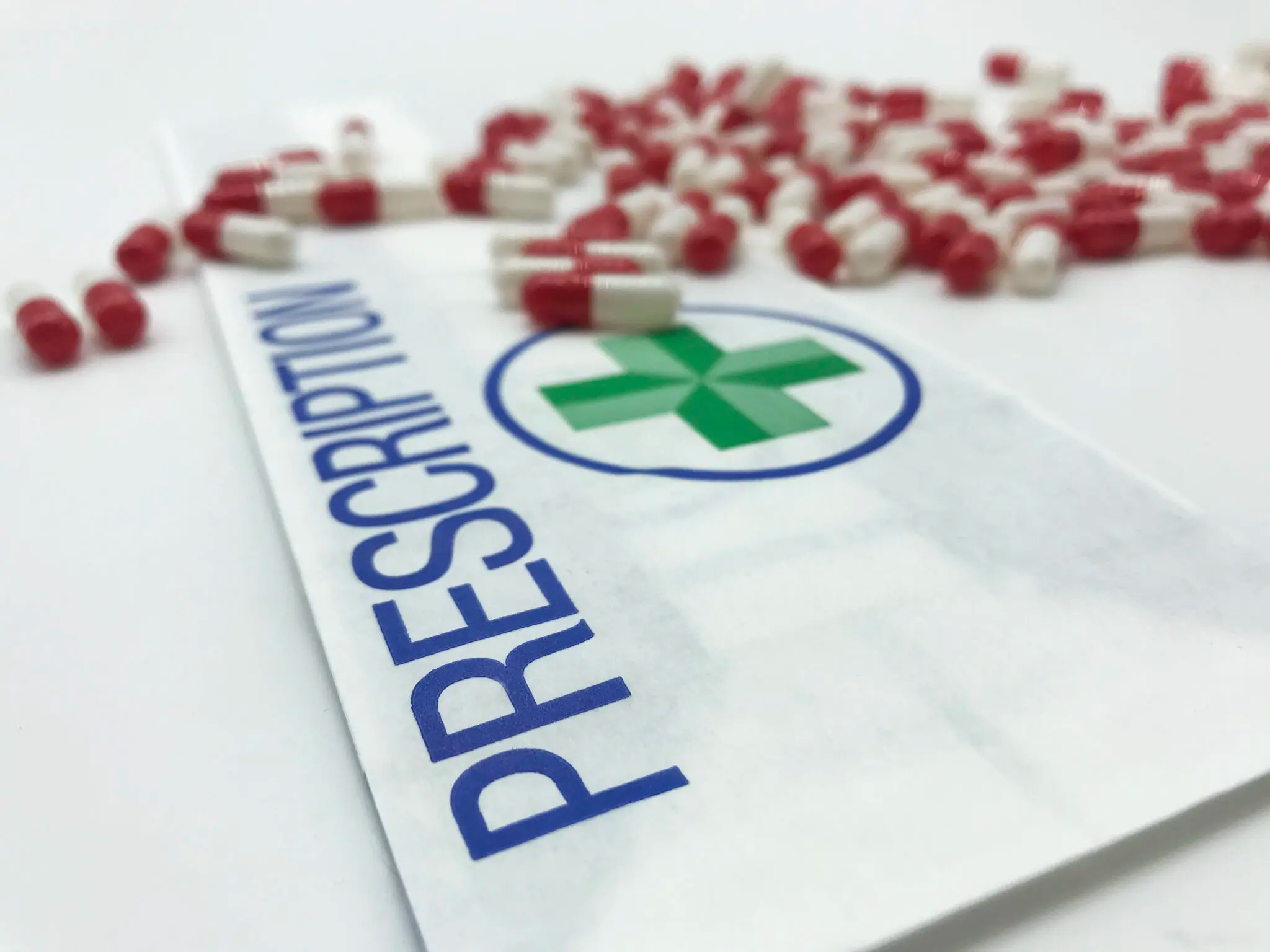SPOTLIGHT
Codeine misuse — South Africa set to get new guidelines

In response to high levels of codeine abuse in South Africa, health authorities have been developing a plan to track the supply of the drug from manufacturers all the way to patients. In this Spotlight feature, Jesse Copelyn explores why people get hooked on codeine, and how the new project could combat the problem.
South Africa’s medicines regulator is developing a new set of initiatives to stem the misuse of codeine, an opioid drug found in certain pain relief medicines and cough mixtures, but which people also frequently use in large doses to get high – a practice that is particularly rife among young people, according to the regulator – the South African Health Products Regulatory Authority (Sahpra).
Nthabi Moloi, Sahpra’s communications officer, told Spotlight that abuse of codeine-containing products in the country is of “grave concern”, and that in response the regulatory body is drafting new guidelines on the drug, which will be available for public comment in June 2024.
Dr Sham Moodley, who chairs a multistakeholder forum on codeine misuse, explained that Sahpra was considering an initiative that would require all pharmacies and health providers in the country to digitally record the ID numbers of patients who buy or collect codeine. This information would feed into a centralised computer system used by health workers nationally, which would flag patients who were requesting too much of the drug across different dispensers. Sales of codeine by manufacturers and wholesalers would also be tracked to ensure companies weren’t supplying the opioid to unregistered outlets.
The programme – the Codeine Care Initiative – had a previous iteration which applied only to pharmacies, but this was voluntary and most pharmacies chose not to take part. The new phase of the initiative would be mandatory, and would incorporate all role players in the codeine supply chain, Moodley said.
Asked about the programme, Moloi didn’t explicitly confirm these details, but noted that Sahpra was engaging with various stakeholders to review “the current data reporting requirements” in order to “facilitate reporting” on codeine supply. She said the upcoming draft guidelines will stipulate the information that companies and health authorities will have to provide to Sahpra when dispensing the drug. These reporting requirements would first apply to manufacturers, while dispensing points would be “targeted in later phases”.
One in four pupils is abusing codeine in some schools
At large doses, codeine can induce a range of warm, fuzzy and euphoric feelings, but it can also come with health complications, particularly with prolonged use. These include confusion, breathing problems, liver damage and gastrointestinal issues such as constipation, bleeding and peptic ulcers (sores that line the stomach or small intestine). People can also die from overdosing, which Moloi highlighted as a concern for Sahpra.
It’s for this reason that health professionals have long been looking for ways to stem the abuse of codeine, which is found in both prescription and over-the-counter medicines in South Africa. Codeine-containing cough syrups, which can be bought without a script, are a particular target of misuse, especially among young people. The syrups are frequently mixed with fizzy drinks so that large amounts of the often unpleasant-tasting formula can be downed (the combination is sometimes referred to as “lean”).
Research conducted in four township schools in Mpumalanga and the Free State found that about a quarter of Grade 10 to 12 pupils surveyed said they had used codeine-based cough mixtures to get high. This had typically started when they were between 15 and 17, and were largely unaware of the side-effects.
Professor Nadine Harker, deputy director of the Substance Use Programme at the South African Medical Research Council, explained that kids often use lean “as part of codeine parties” and that the drug provides “entertainment and escapism”.
Because codeine has genuine medical applications, some people can also become dependent on it accidentally. In one study, patients at rehabilitation centres in South Africa told researchers that they began taking codeine-based pills to manage pain following surgery or simply in response to severe headaches and migraines. However, over time they had come to rely on the drug as an emotional crutch to deal with depression and stress, without realising they were getting hooked. Common pills reportedly included Stilpane, Syndol, Myprodol and Adcodol.

A codeine molecule ball. (Photo: Jynto (CC0, https://commons.wikimedia.org)
New Codeine Care Initiative to help without violating privacy
The new stage of the Codeine Care Initiative is one way of empowering health workers to monitor these patients and prevent them from falling through the cracks. Information about the programme was provided to Spotlight by the secretariat of the Codeine Care Forum, which developed the new leg of the project. The forum includes a range of stakeholders, from manufacturers and private pharmacy groups, to universities and professional associations.
The idea for the initiative came about in the early 2010s, when a representative body for pharmacists, the Pharmaceutical Society of South Africa, developed the first stage of the initiative, the secretariat said. Moodley, who chairs the forum, added that as part of this phase, a computer program was developed, which could capture the ID numbers of patients buying codeine, and generate a warning message on pharmacists’ screens when they were asking for problematic amounts across different pharmacies.
When this happens, depending on the specific case, health workers could “refuse [to provide more of the medicine], educate [the person], or suggest alternatives”, according to the secretariat. The programme remained limited to a small number of outlets however, and a 2017 paper found that people who work with drug users doubted its efficacy. Mariet Eksteen, a member of the secretariat, explained part of the problem: “As associations or interest groups, we cannot mandate participation. Only a regulator, in this case Sahpra, can mandate participation or compliance as they oversee medication in South Africa.”
Indeed, according to Anthony Engelbrecht, the IT systems and solutions architect behind the initiative, the software was only deployed at about 400 to 450 pharmacies. He noted that many companies were reluctant to get on board because they didn’t want “all their customer information getting shared to the potential opposition”.
Another challenge was that initially the programme wasn’t compulsory for patients to take part. “So, where the patients were concerned about their health, they would give you consent, but where there was a potential for overuse of the codeine they… could refuse to give their ID numbers,” Moodley said.
This changed in 2017, he said, when regulations were published under the Medicines Act, which made it mandatory for healthcare providers to capture the ID numbers of anyone buying a medicine scheduled 2 or higher (all medicines in South Africa are scheduled 0 to 8, with a higher number indicating greater regulatory oversight). Codeine-containing products are scheduled 2 to 6 depending on the dose and whether they contain additional active ingredients (for instance, schedule 2 codeine-containing products must be combined with other substances like paracetamol). As a result of the 2017 regulations, the legal framework is now in place to implement a Codeine Care Initiative that has more teeth, the secretariat said.
Asked whether it would nevertheless violate patients’ privacy to share their data without consent, Engelbrecht explained that pharmacists wouldn’t be able to log onto the system to find a person’s details and substance use history: “There’s virtually no information that we actually share, all we’re doing is throwing up warnings to the pharmacist” when a person goes over their allotment.
Read more in Daily Maverick: Drug use in South Africa surged over past two decades: study
Any data that went to Sahpra would also be anonymised. “They might ask [for a record of] all the products that pharmacy x has dispensed because they might be doing an audit on that pharmacy – we [would] produce that for them without patient information, without a surname and ID number.” These details could, however, be handed over if there was a criminal investigation.
As a result, the secretariat believes the programme shouldn’t contravene privacy laws. Sahpra’s Moloi agreed: “[T]he current legislation already provides the mechanisms to collect the required data from the various stakeholders.”

Codeine-containing medicines are well known and should be familiar to most health professionals, but it is unclear whether they are exercising the necessary care in respect of these products, and adequately informing patients of the risks. (Photo: Chemist 4 U / Flickr)
Programme to target illegal codeine dealers
Not only would the programme help health workers to stop the accidental or intentional misuse of codeine among patients, but it would also combat the illegal market for the drug, said Moodley. Legally, the drug can only be sold by a registered pharmacist (including interns) or an assistant under their supervision, yet it appears that large quantities are being channelled into illicit or unregistered outlets.
This could be happening for a few reasons, according to Andy Gray, a senior lecturer in pharmacology at the University of KwaZulu-Natal. “Either it’s theft and diversion at the level of the manufacturers, or it’s theft and diversion at the level of wholesalers,” he said. Given how much illicit codeine is being found, Gray noted it’s unlikely to come from the community pharmacies. Wholesalers “might be selling into unregulated channels”.
The Codeine Care Initiative could help tackle this problem. “If you are able to track [sales] from manufacturer all the way to patient… we would then be able to say where the leakage is [happening],” Moodley said. DM
This article was published by Spotlight – health journalism in the public interest. Sign up to the Spotlight newsletter.




















Comments - Please login in order to comment.